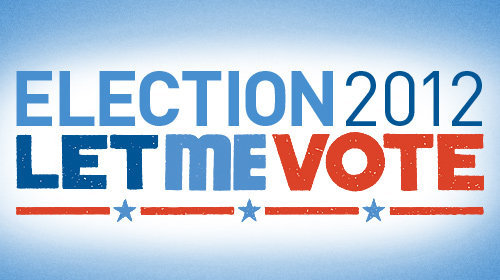
The right to vote is one of the most basic rights we have as Americans. It’s your civic duty as an American to join your family, friends and community at the ballot box. Take responsibility and stand up for what you believe in, because your vote matters. In order to participate in our democracy and have your voices heard, all voters need to understand the rules in their state, register on time and show up at the correct polling place. Check out these resources to make sure you know what you need to vote in your state this year.
It’s 46 days until the 2012 presidential election, and Ohio voters still do not know when they’ll be allowed to cast their ballot. Voters have been caught in the middle as local election officials have created vastly different early voting hours in rural and urban counties, Ohio Secretary of State Jon Husted , and lawsuits left .
Last week, the fight over early in-person voting was to come to a dramatic crescendo as Judge Peter Economus to explain why he defied the Judge’s order and barred local boards of elections from setting early voting hours the weekend before Election Day. Secretary Husted backed down, but appealed Judge Economus’ decision in federal court. Judge Economus denied Secretary Husted’s request to halt implementation of weekend voting pending the court appeal, meaning Ohioans should soon have established early in-person voting hours for the weekend before the election.
If you are confused by these twists and turns, you’re not alone—and that is part of the design. Voters have suffered as politicians contort the election system, resulting in widespread confusion and many Ohioans simply giving up out of frustration. Make no mistake: that is exactly the result many politicians hope to achieve, and that is why they continue to inject chaos into the election system.
In 2008, early in-person voting was widely popular, especially among African Americans. On the weekend before Election Day, prominent pastors organized “Souls to the Polls” programs, transporting parishioners directly from church to the polls on Sunday. showed that African Americans were the demographic most likely to use early in-person voting, especially on the weekends. Polling released this week by Public Policy Polling also by a 58% to 35% margin.
Secretary Husted’s position is especially troubling given the trend of elections—no longer is voting relegated to just Election Day. Early voting gives voters greater flexibility, provides additional time for those who need assistance, and eases the burden on busy precincts on Election Day. The results have been clear. Ohio saw long lines and confusion during the 2000 and 2004 presidential elections, but the expansion of early voting alleviated these problems for the 2008 election, even though the overall number of voters. In the years that followed, many counties were able to consolidate precincts because fewer voters were arriving on Election Day—saving money in staffing and equipment.
The success and popularity of early voting frightens some politicians and they have sought to restrict it. Appeals and additional lawsuits only serve to keep Ohio voters in a state of limbo, when they should be preparing to ensure their vote will be counted.
In response, the ACLU of Ohio has launched the “Let Me Vote” campaign. Through the campaign, organizers have distributed tens of thousands of voter empowerment cards in English and Spanish, held town hall meetings educating formerly incarcerated Ohioans on their right to vote, and .
Excuses are running thin as to why Secretary Husted continues to oppose early voting on the weekends, and many voters and watchdogs are .
Unfortunately, this is neither the first, nor the last election where officials have put politics ahead of voters. Ohio voters have shown time and again that the can overcome these obstacles, and the ACLU will be there to ensure they have the tools to do so.
Learn more about your voting rights: Sign up for breaking news alerts, , and .



